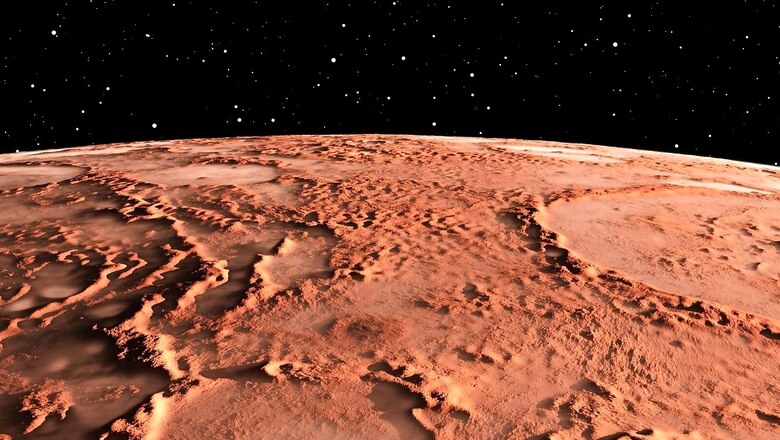
views
The InSight mission of US space agency NASA has been aimed at studying the interior of Mars and gathering data on the planet’s vital signs from below the surface. A recent analysis of Mars’ seismic data has revealed that the Red Planet is surprisingly dry. This defies scientists’ expectations who strive to spot signs of life on the planet.
From the analysis, researchers could find little or no ice in the top 300 metres of Mars’ subsurface near the landing site of InSight. With thorough study of the surface, the team observed that the Red Planet’s crust is quite weak and porous. In addition, the sediments were found to be not cemented well and little to no ice was seen filing the pore spaces.
“These findings don’t preclude that there could be grains of ice or small balls of ice that are not cementing other minerals together. The question is how likely is ice to be present in that form?” said geophysicist Vashan Wright of Scripps Institution of Oceanography at the University of California San Diego. Wright conducted the analysis with three co-authors and published their findings in Geophysical Research Letters.
The analysis unearthed another fact about Mars that contradicts a leading idea about the planet. Experts believed that oceans of water may have flowed on Mars in its early history and much of that water turned into minerals that the underground cement is made of.
However, according to co-author Michael Manga, there is less cement in the region below the lander suggesting that there is little water present there. This lack of cemented material, according to researchers, indicates water scarcity below 300 metres near the equator. Moreover, the cold temperatures of Mars equator suggest that condition would have been conducive for the water to freeze if it was present there.
Many scientists have long believed that the subsurface of Mars would be full of ice. But, the new observations tend to contradict that belief. Still, scientists claim that their model has indicated the presence of big ice sheets and frozen ground ice at the Martian poles.
Read all the Latest Buzz News and Breaking News here




















Comments
0 comment